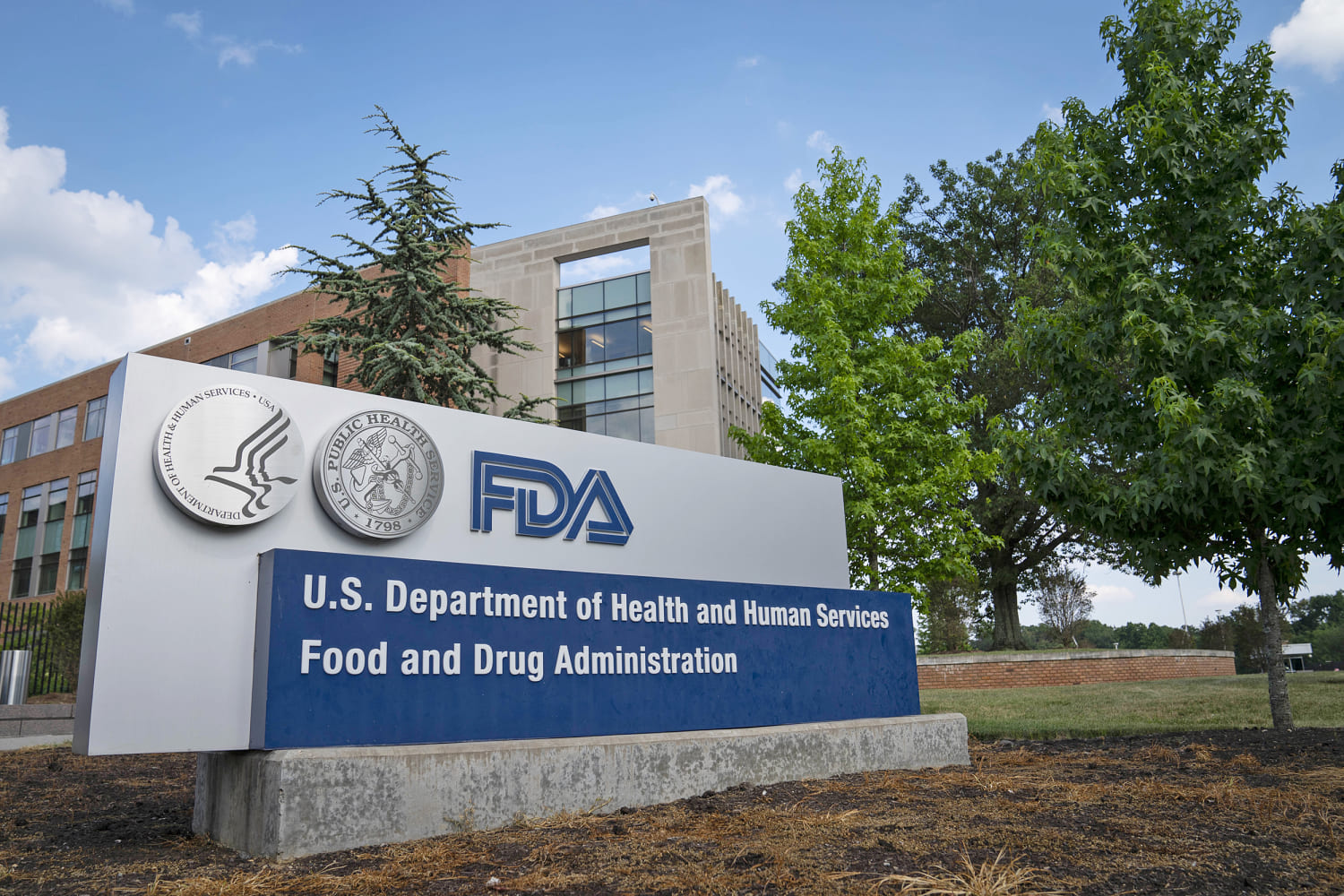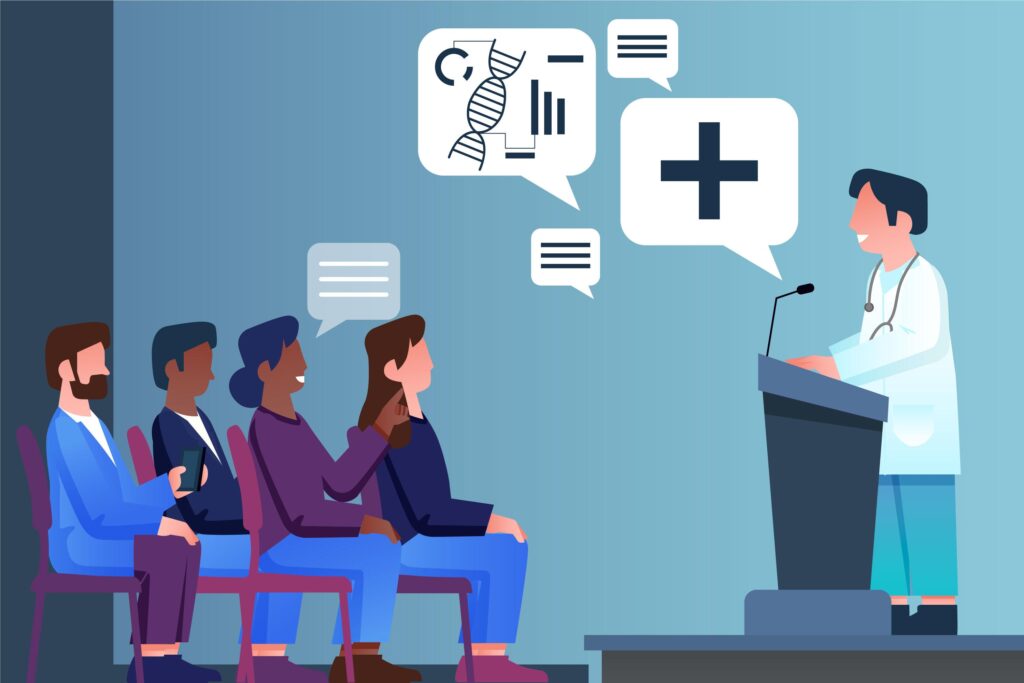
The Food and Drug Administration convened an advisory committee to evaluate a heart device manufactured by Abbott. However, they did not disclose that many of the members had received payments or funded research from the company. This information was readily available on a federal database
According to a database maintained at the Department of Health and Human Services, a member of the FDA advisory panel was connected to hundreds of payments totaling nearly $200,000 from Abbott. A second member of the FDA advisory committee was linked to 100 payments worth about $100,000, and conducted research funded by Abbott. Another member of the committee was involved in research that was supported by Abbott to the tune of more than $180,000.
The “Open Payments” database of the government records financial relationships among doctors, certain other providers of health care and manufacturers and distributors. KFF Health News discovered records of Abbott payments related to 10 of the FDA advisory board members who were weighing the clinical evidence of a heart device named TriClip G4 System. The money paid between 2016 and 2022, the latest year that the database records payments for, adds up approximately $650,000.
The panel decided almost unanimously that benefits outweighed risks. Abbott announced that FDA approved TriClip on April 2, which is intended to treat leakage of the tricuspid heart valve.
The Abbott payments show the extent of money from the medical industry and the limitations of transparency in the FDA. The payments shed light on the FDA’s approach to weighing the relationships between members of its advisory committees and manufacturers of medical devices and drugs that are reviewed by those committees as part of regulatory approval.
The payments are not indicative of wrongdoing by the agency, its external experts or the device manufacturer. The database shows that none of the payments are directly related to the TriClip.
Some people familiar with the process and those who have served as FDA advisory committee members said that the payments should have disclosed at the meeting on Feb. 13, if not because of a requirement by the FDA, then for the sake of transparency. The money could have called into question the objectivity of committee members.
Email: “This is a serious problem,” said Dr. Joel Perlmutter. He was a former FDA member and professor of neurology in the Washington University School of Medicine, St. Louis. “They must or should disclose this due bias.”
Open Payments is a database that records payments made by drug and device manufacturers. The “associated research funding” category supports research for which a doctor is listed as a principal researcher in the database. A second category called “general payments” includes consulting fees and travel expenses, as well as meals, that are connected to doctors in the database. Money can be paid by manufacturers to hospitals, universities or other corporate entities. However, the database explicitly links doctors’ names to payments.
An FDA official revealed that at the public meeting for the TriClip device a screening had been conducted to determine if any committee members were in conflict of interest. They found all committee members to be in compliance with the government’s requirements.
Audra Harrison, spokesperson for FDA, said via email that the agency does not comment on individual members of advisory committees.
She said that the FDA adhered to all regulations and procedures in screening these panel members, and she stands by the integrity and transparency of the disclosure process and the vetting process in place. This includes making sure that members of the advisory committee do not have a conflict of interests or appear to have one.
Brent Tippen, a spokesperson from Abbott, stated in a press release that the company “has no control over who is chosen to participate in FDA advisory panels”.
President of the National Center for Health Research is Diana Zuckerman. A think tank. She said that the FDA should not have allowed Abbott recipients to judge Abbott products. She said the agency has a narrow view of what is disqualifying.
Craig Selzman was a member of the committee. He is the chief of Cardiothoracic Surgery Division at the University of Utah. Open Payments connects Selzman to Abbott’s associated research funding of $181,000 to University of Utah hospitals & Clinics.
Selzman responded in an interview that a reasonable person would question the impartiality and integrity of the committee members in light of the Abbott payments: “People on the outside, looking in, probably would say yes.”
He pointed out that the money from Abbott went to the University, and not to him. He said that participating in industry-funded trials is beneficial to doctors’ careers. He said “It should be a better method to provide more clarity.”
In the past, FDA appointed people to advisory panels who were in a relationship with manufacturers of products being reviewed. In 2020, for example, the FDA appointed a doctor to chair an advisory committee that reviewed Pfizer’s covid-19 vaccination. The doctor was formerly a Pfizer advisor.
Appearance Issues

Candidates for FDA advisory committees, who are selected to give expert advice on complicated drug and devices applications, must fill out a confidential report. This asks candidates about their current and previous financial interests, as well as anything that could “appear” as a conflict.
According to a document on the FDA’s website, it is up to the FDA to decide if someone has an “appearance problem” and whether they can be on a panel. According to the document relationships that have lasted more than one year do not generally cause appearance issues, unless it is clear they are closely tied to a particular company or involved with the product being reviewed. Document says the main question to ask is whether a reasonable person would question a member’s impartiality because of financial interests.
The FDA makes a distinction between financial and appearance conflicts of interest. An FDA explanation explains that conflicts of interest can occur when someone who is chosen to be on an advisory panel has financial interests which “may be affected” by the work they do on the committee.
The FDA can grant a public waiver if it finds that the applicant has a conflict but wants to be on the panel. No waiver was granted to any of the TriClip panelists.
The FDA’s disclosure policy is different from the rules that apply to conferences where doctors can earn continuing medical education credits. In Boston, last month, the group organizing the conference asked speakers at a conference on heart failure technology, which included TriClip, to include disclosures dating back 24 months in their presentations.
These disclosures — including the names of companies that paid speakers consulting fees, grants, or reimbursed travel expenses — were also posted on the website for the conference.
“Unbridled Enthusiasm”
Megan Naber told the advisory panel that FDA had designated TriClip as a “breakthrough device” with “the potential for more effective diagnosis or treatment of a life-threatening disease or irreversibly crippling condition” than current treatments.
Naber stated that the FDA may be “willing to accept more uncertainty” in the assessment of the risks and benefits of breakthrough devices.
In a paper prepared for the FDA advisory committee, FDA employees highlighted findings from a trial that did not reflect well on TriClip. The report states that patients treated with TriClip experienced “numerically” higher rates of mortality and hospitalization for heart failure during the first 12 months following the procedure than compared to a control group.
Tippen, Abbott’s spokesperson, did not respond to a comment request on these findings.
The committee voted 14-0 that TriClip is safe for its intended purpose. The panel voted 12-2, stating that the device is effective. It voted 13-1, stating that TriClip’s benefits outweigh its risks.
Dr. Paul Hauptman is the committee member who received the most money in the database from Abbott. He voted against the device for its effectiveness, and he was the only one to vote against it on the question of risks versus benefits.
Hauptman stated during the meeting that safety was “very clear”. He added, “I felt I needed to take a step back from unbridled excitement.” He said that “a better definition” of who will benefit from this device is needed.
Open Payments shows that Hauptman, Dean of the University of Nevada Reno School of Medicine is linked to 268 general Abbott payments totaling approximately $197,000. Keswick Cardiovascular is listed as the recipient of some payments.
Hauptman wrote in an email that, he had followed FDA guidelines and added: “My impartiality is evident by my vote and critical remarks.”
Despite concerns, some committee members voted for the device.
According to Open Payments, Dr. Marc Katz is the chief of the Division of Cardiothoracic Surgery, Medical University of South Carolina. He has received 77 general payments from Abbott totaling $53,000 and has worked on research funded by the company of about $10,000.
He said, “I voted for safety and no for effectiveness. But then I caved in and voted for benefits that outweighed the risks.”
In an email he stated that “all was disclosed and examined by the FDA.” He claimed that he was “impartial” and “openedly expressed… concerns about the treatments.”
Dr. Mitchell Krucoff is a professor of medicine at Duke University School of Medicine. He has received 100 general payments, totaling approximately $105,000. HPIC Consulting received some of the payments. According to Open Payments, he also worked on a research project supported by Abbott for about $51,000.
He stated that he had voted for the device in all three questions, and that doctors would have “a great deal to learn” when it is on the market. By treating patients with the device now, do we “set people up for disasters later?”
Krucoff stated in an email that he had completed a “very comprehensive conflict of interest screening” by the FDA for this panel. This included not only Abbott, but “any work/payments from any other manufacturers with devices within this space.”
The database links Dr. John Hirshfeld Jr. an emeritus Professor of Medicine at the University of Pennsylvania to six payments totaling $6,000 from Abbott. According to the database, two of the payments he received went to a non-profit, the Cardiovascular Research Foundation. He voted “yes” on all three TriClip questions, but stated at the meeting that more rigorous data would have been helpful to prove its efficacy.
Hirshfeld stated in an email that he had disclosed the payments to FDA. He said the agency didn’t consider him to be in a conflict of interest because he no longer had any stake in Abbott and that his relationship with the company was over. He said that he was excluded from previous advisory panels through the screening for conflict of interest.


